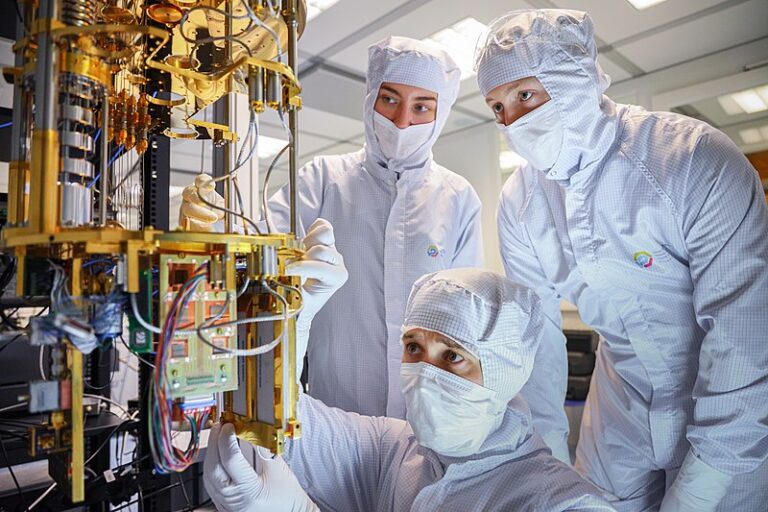In the high-stakes race to achieve quantum computing supremacy, Europe has fired a powerful salvo. Researchers at the renowned Dutch quantum institute QuTech in Delft have unveiled plans to construct Europe’s first 100-quantum bit (qubit) quantum computer, a feat expected to be accomplished by 2026.
The realm of quantum computing has long been dominated by tech giants and nations vying for a decisive edge in this revolutionary field. However, Europe is determined to stake its claim, with the Dutch consortium spearheading an ambitious project funded by the continent’s €1 billion Quantum Flagship program.
The project, part of the OpenSuperQPlus initiative, aims to build a stepping stone towards an eventual 1000-qubit European quantum computer, solidifying Europe’s position as a quantum powerhouse
When completed, this 100-qubit quantum computer will be a game-changer, providing scientists across Europe with an unprecedented tool for quantum calculations and simulations. The project, part of the OpenSuperQPlus initiative, aims to build a stepping stone towards an eventual 1000-qubit European quantum computer, solidifying Europe’s position as a quantum powerhouse. “The R&D cycle has come full circle,” remarks Leonardo DiCarlo, the lead researcher from QuTech. “Academic research first enabled spin-off companies to grow, and now their products are being used to accelerate academic research.” This symbiotic relationship between academia and industry highlights the collaborative spirit driving Europe’s quantum quest.
The 100-qubit machine is a true collaboration, with contributions from various Dutch institutions, including QuTech, Delft University of Technology (TUD), and the Netherlands Organisation for Applied Scientific Research (TNO). The project also boasts 28 partners from 10 countries, underscoring the pan-European effort behind this endeavor.
“Quantum Inspire is currently focused on training and education, but the upgrade to 100 qubits is expected to allow research into quantum computing,” explains Quantum Delta NL, the Dutch umbrella organization overseeing the project.
With this 100-qubit quantum computer, Europe aims to unlock new frontiers in quantum research and solidify its position as a global quantum leader. The successful completion of this project could pave the way for groundbreaking discoveries, revolutionizing fields from cryptography to materials science and catalyzing a quantum revolution that shapes the technological landscape for decades to come.
In the relentless pursuit of quantum supremacy, Europe has made a bold move, assembling a formidable coalition to build a 100-qubit quantum computer that could redefine the boundaries of what’s possible. As the world watches with bated breath, this ambitious endeavor promises to propel Europe to the forefront of the quantum race, ushering in a new era of scientific exploration and technological advancement.



